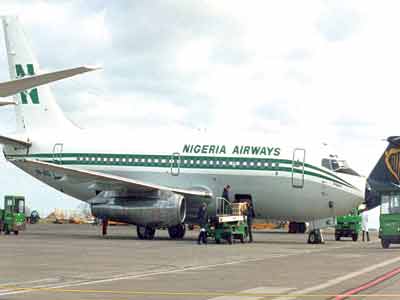The Managing Director of Aviation Africa Plate-forme (AAP), Frank Ogochukwu, in this interview with OLUSEGUN KOIKI, speaks on Senator Orji Kalu’s wild allegations of illicit substance use against Nigerian pilots, and its damage to the safety culture and professionalism of Nigeria’s aviation industry.
Recently, the former governor of Abia State and now a senator, Orji Kalu, alleged that some Nigerian pilots take illicit substances before flights. As a professional in the industry, what is your opinion on this?
That is a very serious and unfortunate statement from a distinguished senator of the Federal Republic of Nigeria, and frankly, there is no factual basis to support it. Nigerian pilots operate under some of the strictest regulatory and medical oversight regimes anywhere in Africa, fully aligned with the International Civil Aviation Organisation’s (ICAO) international standards.
Every licensed pilot in Nigeria must undergo regular medical examinations conducted by the Nigeria Civil Aviation Authority (NCAA)-certified aviation medical examiners, and part of that medical screening includes drug and alcohol testing. These tests are mandatory not only at the time of licensing, but also during periodic renewals, random checks, and pre-employment screenings.
In addition, all Nigerian airlines have zero-tolerance substance policies embedded within their Safety Management Systems (SMS). If any pilot is suspected of substance use, that individual is immediately grounded and investigated. So, for Senator Kalu’s suggestion that Nigerian pilots routinely take substances before flights is baseless and damaging to the reputation of hardworking, highly trained professionals who fly safely every single day and to the Nigerian aviation Industry. It’s important to differentiate between pilot fatigue, which is a legitimate operational issue globally, and substance abuse, which is a disciplinary and criminal matter.
Nigerian pilots are committed professionals. Many are trained to international standards, and some hold dual Federal Aviation Authority (FAA) and European Union Aviation Safety Agency (EASA) licenses. If such a problem existed, it would have surfaced through these systems long ago.
In short, this allegation does not reflect the true safety culture and professionalism of Nigeria’s aviation industry. Instead of casting doubt, public figures should be encouraging greater investment in pilot welfare, simulator training, and fatigue management, which are the real pillars of flight safety.
The yuletide season is fast approaching, the season is notorious for flight delays and cancellations by indigenous airlines. Do you think Nigeria’s airlines have the capacity for domestic travel?
Nigeria’s domestic airlines currently do not have adequate capacity to fully handle the surge in passenger traffic we typically experience during the yuletide season. While demand can rise by up to 30–40 per cent during December, the total number of serviceable aircraft across all Nigerian carriers hovers around 60 to 70 per cent at best. That number is quite low for a population of over 200 million people, especially when you consider that several of those aircraft may be undergoing maintenance or awaiting spare parts due to foreign exchange challenges.
So, what happens is this: airlines are forced to overstretch their existing fleets, leading to tight schedules, operational delays, and sometimes last-minute cancellations. It’s not that the airlines are careless, they are simply operating within the limits of available resources, infrastructure, and crew duty regulations. We must also remember that most airports like Lagos, Abuja, and Port Harcourt are already heavily congested, and the harmattan season can further complicate flight operations with visibility issues.
Now, most airlines are trying to cushion this by leasing additional aircraft, what we call ‘wet leases,’ and by adjusting schedules. But these are short-term measures. The long-term solution lies in expanding fleet capacity, investing in local Maintenance, Repair and Overhaul (MRO) facilities, improving access to foreign exchange, and upgrading airport infrastructure across the country.
Nigerian airlines I believe are doing their best within a very constrained operating environment. But until the ecosystem receives deeper structural support, yuletide delays and cancellations will remain a recurring feature of our air travel experience. My advice to passengers this season is to plan ahead, stay flexible, and manage expectations. The yuletide period always comes with increased demand, limited capacity, and operational pressure on airlines, so being prepared makes a big difference. Passengers should book flights early and through verified channels.
They should also arrive at the airport well in advance, ideally two to three hours before departure. Also, it’s important to stay informed, stay calm, pack light and always keep essential items in their hand luggage, especially medications, chargers, and valuables, just in case of re-routing or overnight delays.
What is your view about the planned concession of some airports by the Federal Government?
The plan to concession Nigerian airports is consistent with global trends, but execution and regulation are key. Essentially, concessioning of airports is generally seen as a tool to unlock private capital, modernise infrastructure, and improve operational efficiency. However, without strong regulation, there is a risk of unfair tariff increases, labour displacement, and skewed revenue sharing.
Given Nigeria’s history of underinvestment and poor service quality in aviation infrastructure, concession offers a viable pathway for modernisation, provided that in terms of execution, transparency, regulation, and labour protections are embedded in the process.
That said, let’s look at some data and benchmarks on global, Africa and local airport environments because for Nigeria to be competitive, our airports cannot continue under purely government management. Therefore, concession, if properly designed, could unlock capital, modernise facilities, and improve service and transform our airports into major hubs.
More than 45 per cent of global passenger traffic according to Airports Council International (ACI) passes through airports with private sector participation. Europe leads in concession models with Heathrow London Airport, Schiphol in the Netherlands, and Frankfurt, Germany, making Europe a leader in concession models.
India’s Delhi and Mumbai Airports’ successful Public Private Partnerships (PPPs) led to world-class infrastructure. Kotoka International Airport (Ghana) – modernised under a PPP with international support, leading to improved service quality and higher passenger satisfaction, while South Africa’s Airports Company (ACSA), a majority state-owned enterprise, but operates on a commercial model, thereby allowing Johannesburg and Cape Town airports to consistently rank among the top two in Africa.
So, where are we as Nigeria currently in comparison with other Africa airports? Our service quality remains low according to Skytrax, both Addis Ababa and Johannesburg airports carry more passengers than the Murtala Muhammed International Airport (MMIA). In terms of Africa ranking, none of our airports is in the top 10, but you will find Addis Ababa (Ethiopia), Johannesburg and Cape Town (South Africa), and Casablanca (Morocco) among the top-rated airports.
In Nigeria, however, a domestic concession – the Murtala Muhammed Airport Two (MMA2), operated by the Bi-Courtney Aviation Services Limited (BAS), shows potential of private operation, but also highlights risks of contract disputes and weak regulatory oversight over the years.
Labour issues are among the major challenges the government faces in its concession plan. How do you think this can be addressed?
People issues are the most critical in any form of endeavour; therefore, there needs to be in place a proper labour transition programme that will ensure that the interests of the Federal Airports Authority of Nigeria (FAAN) staff are adequately protected – the fear of job losses, wage reductions, loss of pensions, and redeployment.
Labour unions within the aviation industry are a critical stakeholder in this process and therefore must be engaged strategically through the entire concession journey for sustained buy-in. Opposition from the unions must have significantly contributed to the stalling of the past concession attempts. Ignoring labour stakeholders can kill reforms.
To address the Labour issues, first, the government should engage in early and transparent dialogue with the unions to reduce mistrust. Secondly, there should be a labour transition plan that guarantees staff pensions, offers redeployment to other FAAN-run airports, and ensures severance where necessary, with appropriate compensation. Thirdly, the concession agreement requires private operators to absorb a percentage of FAAN staff. Fourthly, create an upskilling program in customer service, ICT, and airport operations to make FAAN staff competitive under private management. Fifth, the government should provide a social safety net by establishing a transition fund to cushion workers displaced during concessioning and establishing a monitoring unit with union representation to protect staff welfare.






